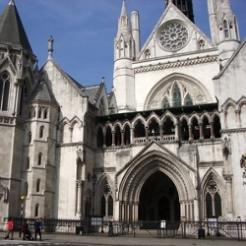Camphill Village Trust residents and co-workers have formed a community branch of Unite the union, as the High Court dismissed an application for judicial review relating to changes the charity proposes making to their living arrangements had breached their human rights.
People who have learning disabilities live in homes in Botton Village, North Yorkshire, with non-disabled house-parents (known as co-workers) and, in many cases, their families – a practice which has operated for more than 60 years. Co-workers are not paid for the care they provide but are housed and fed and have some expenses met by the charity, the Camphill Village Trust (CVT).
According to CVT, last year HMRC said that from April 2015, all co-workers would be treated as employees for tax purposes. In February, CVT gave all co-workers that had refused to accept employee status, notice to vacate their homes by May or July, and told them their financial support from the charity would cease by the end of March.
Campaigners argue that it is CVT's choice treat co-workers as employees.
Three residents had claimed that the changes had breached Article 8 of the Human Rights Act, the right to a family life. The High Court has now ruled that this claim is “unarguable” and refused permission for a judicial review.
Helen Tucker, partner of Anthony Collins Solicitors, representing CVT, said: “The charity is relieved that the court has recognised the long, careful process they have worked through to present various options to co-workers before seeking to introduce the current changes. The judge emphasised his hope that previous tensions will not stop the practical progression of the matter going forward. The charity shares that hope.”
John McKendrick, representing the residents, told the London court: "The claimants have enjoyed a private life both by way of developing relationships with others and also by respect for privacy in their homes - as there are no intrusive paid care workers coming in and out.
"This special arrangement respects their autonomy and dignity.
"The changes proposed presents a significant threat to the established and successful way of life that the claimants have enjoyed for many years.”
Mr Justice Knowles said it was 'not arguable' that there had been a breach of the residents' human rights.
The judge said: "The claimants, who are learning-disabled, deserve respect and I do not doubt what they feel they gain from the arrangements with the co-workers that have existed up until now.
"But I must conclude that it is not arguable that Article 8 has been breached and it is my firm view that it is in the interests of all concerned that that is appreciated now."
He added: "There have plainly been tensions in the course of the history of this matter and different people will, understandably, feel strongly.
"But I emphasise the hope, in the interests of the claimants, as far as possible, tensions are not allowed to influence the practical progression of the matter from this point forward."
There are two cases against CVT at the High Court. A separate claim citing ‘breach of trust’ is unaffected by this decision. In March moves to evict the non-disabled residents from homes were put on hold when the High Court issued an order temporarily halting the changes while it considered whether to grant a judicial review in the 'breach of trust' case.
Formed a trade union
Some 70 co-workers and residents have now formed a community branch of Unite to raise the profile of their campaign against the charity.
Allan Hobson, resident, said: “I was a union man when I worked for the council for 14 years. It feels important to join up again now because it means we can speak up more. We're hoping for lots of support from our union friends.”
Eddie Thornton, a former employee of the charity who resigned and became a co-worker when it became clear no compromise was going to be made with the community, added: “The residents have been silenced by their charity and let down by their local authority. We hope that by joining a union with a million members that their voices will be amplified to a level that no one can ignore.”
John Coan of Unite said: “Unite Community is proud that we have constituted a union branch in Botton. Their ethos of cooperation and community fits exactly with what we are about, and we are offering the residents and their co-worker friends solidarity in their struggle.”
This article has been updated to include comment from a spokesman for the residents and to clarify that it was the judicial review that was dismissed not the claims.









